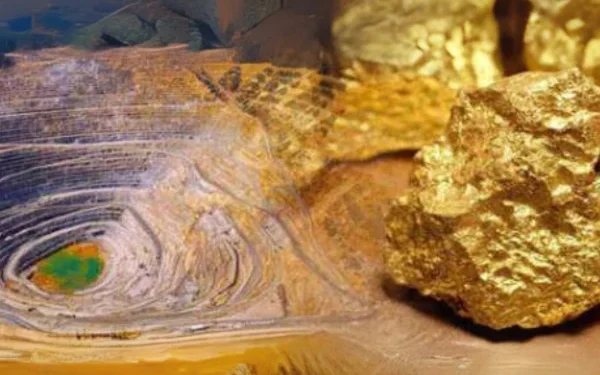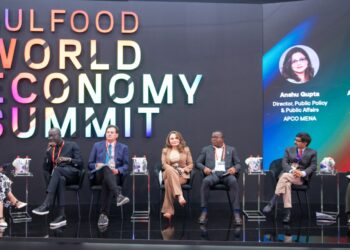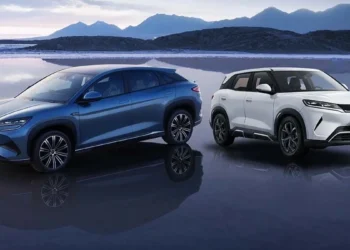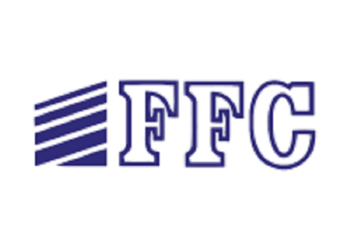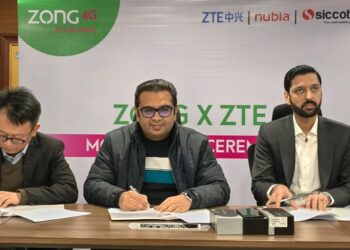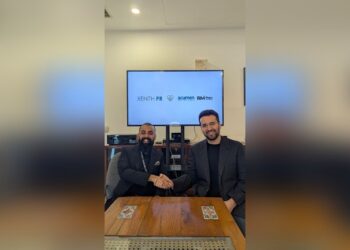Islamabad, Pakistan — In a major boost to Pakistan’s mining sector, the country has received a $5 billion investment offer from international financial institutions and multinational donors for the development of the Reko Diq copper and gold project located in the Chagai district of Balochistan. The proposed investment surpasses the total financial requirement for the project, which is estimated at $3 billion, signaling growing international confidence in Pakistan’s mineral potential and economic stability.
This significant development not only highlights the strategic importance of the Reko Diq project but also underscores the increasing interest of global financial stakeholders in Pakistan’s mineral wealth, particularly in regions like Balochistan, which has long remained underdeveloped despite being rich in natural resources.
Reko Diq: One of the World’s Largest Untapped Copper and Gold Reserves
Located in the remote and mineral-rich terrain of Balochistan, Reko Diq is believed to host one of the largest undeveloped copper-gold deposits in the world. The site covers an area of approximately 13,000 square kilometers, and geological surveys indicate it contains millions of tons of copper and gold reserves.
After years of legal and administrative hurdles, the project was revived through a joint venture with Canadian mining giant Barrick Gold Corporation. Barrick holds a 50% stake in the project, while the remaining 50% is split between Pakistan’s federal and provincial governments through state-owned entities such as OGDCL (Oil and Gas Development Company Limited) and Pakistan Petroleum Limited (PPL).
The renewed agreement not only resolved international arbitration disputes but also paved the way for secure and transparent foreign investment, turning Reko Diq into a globally recognized mining venture.
Financial Backing from Leading Global Institutions
According to official sources reported by The Express Tribune, several leading financial institutions and development banks have pledged their interest in financing the Reko Diq project. The offer of $5 billion in financing comes from a group of high-profile entities, including:
- Asian Development Bank (ADB)
- Islamic Development Bank (IDB)
- International Finance Corporation (IFC)
- US Exim Bank
- German and Danish development institutions
These organizations have demonstrated a strong commitment to supporting mineral development in Pakistan, seeing Reko Diq as a flagship opportunity for economic uplift, job creation, and sustainable resource extraction.
Notably, the US Exim Bank has offered unlimited financial support for the project, a gesture that reflects the strategic importance the international community is now placing on Reko Diq and, by extension, Pakistan’s mining sector.
Role of Government and Special Investment Facilitation Council
The successful mobilization of investment has been aided significantly by the Special Investment Facilitation Council (SIFC), a high-level body created to fast-track large-scale foreign investments in Pakistan. Federal Minister for Petroleum, Ali Pervaiz Malik, is reportedly playing a central role in driving forward the project, coordinating between domestic agencies and international stakeholders.
With the SIFC streamlining processes across regulatory, legal, and logistical fronts, the Reko Diq project has gained momentum, ensuring transparency and investor protection, which are critical in attracting long-term foreign capital.
Recent Engagement with US Investors and Diplomatic Support
In a bid to expand international participation in Pakistan’s mining sector, the Ministry of Petroleum recently conducted a webinar in collaboration with the US Embassy and prominent American investors. The event was hosted by OGDCL, Pakistan’s state-owned partner in the Reko Diq project, and focused on highlighting the vast opportunities available in Pakistan’s mineral-rich landscape.
The initiative is part of Pakistan’s broader push to diversify its foreign direct investment (FDI) portfolio, with particular emphasis on sectors such as mining, energy, and infrastructure.
The Ministry highlighted Pakistan’s mineral wealth, noting that the country has 92 known types of minerals, of which 52 are currently being mined commercially, including copper, gold, coal, gypsum, and rock salt.
Project Timeline and Production Outlook
According to Barrick Gold CEO Mark Bristow, the Reko Diq project is set to begin production by 2028. The project’s initial phase will involve a total investment of $5.5 billion, covering mine development, infrastructure construction, and processing facilities.
Once operational, the mine is expected to generate approximately $2.8 billion annually in exports, transforming Pakistan into a significant player in the global copper and gold supply chain. Over the life of the mine — estimated at 37 years — the project could generate around $74 billion in revenues, including royalties, taxes, and profit-sharing.
Such large-scale output could provide a much-needed boost to Pakistan’s struggling economy, particularly in reducing the trade deficit and stabilizing the country’s foreign exchange reserves.
Economic Impact on Balochistan and Job Creation
One of the most transformative aspects of the Reko Diq project is its potential to revolutionize the economy of Balochistan, one of Pakistan’s least developed provinces. The project is expected to create thousands of direct and indirect jobs, from construction and mining to logistics, administration, and support services.
Additionally, the project includes commitments for community development, such as:
- Local education and training programs
- Healthcare services for nearby communities
- Infrastructure improvements (roads, electricity, water supply)
The government and Barrick Gold have also pledged to ensure fair revenue distribution with the Balochistan provincial government, allowing local authorities to reinvest earnings into regional development.
Saudi Interest: Manara Minerals to Invest $1 Billion
In a notable show of interest from the Gulf region, Saudi Arabian mining company Manara Minerals has proposed an investment of $1 billion to acquire a 15% equity stake in the Reko Diq project. The offer has already been approved by Pakistan’s federal cabinet, reflecting strong bilateral ties and shared economic goals between Pakistan and Saudi Arabia.
Manara Minerals, a state-backed entity, views Reko Diq as a cornerstone investment aligned with Saudi Arabia’s Vision 2030—a strategy to diversify its economy and invest in sustainable resources globally.
This strategic partnership is expected to enhance financial muscle and technical capacity, and potentially open up new markets for the export of refined metals.
Infrastructure Development: New Railway Line in the Pipeline
As part of the broader project ecosystem, plans are underway to construct a dedicated railway line in collaboration with Pakistan Railways. The proposed rail corridor will connect Reko Diq with Karachi, facilitating the movement of:
- Heavy mining equipment
- Refined minerals for export
- Raw materials and support infrastructure
This new logistics corridor is not only critical for efficient operations at Reko Diq but also promises long-term commercial and strategic benefits, as it can later be expanded to support other mining and industrial operations in Balochistan and beyond.
Strategic and Geopolitical Significance
The Reko Diq project is being watched closely by regional and global powers due to its potential to reshape South Asia’s economic landscape. With Pakistan becoming a hub for critical mineral extraction, the country stands to gain both geopolitical leverage and economic strength.
As the global demand for copper and gold continues to surge—particularly for use in electronics, electric vehicles, and renewable energy infrastructure—Reko Diq positions Pakistan to become a strategic supplier of these high-demand resources.
Conclusion: A Landmark Moment for Pakistan’s Economic Future
The $5 billion foreign investment offer for the Reko Diq project marks a watershed moment for Pakistan’s mining sector and broader economy. With international financial institutions, global mining giants, and regional investors all joining forces, the project reflects a new era of opportunity, transparency, and international confidence in Pakistan.
From economic revitalization and job creation to strategic partnerships and export diversification, the Reko Diq project has the potential to transform Pakistan’s economic narrative. With construction expected to ramp up in the coming years and production beginning by 2028, the world will be watching how Pakistan navigates this high-stakes journey toward resource-driven development.
















